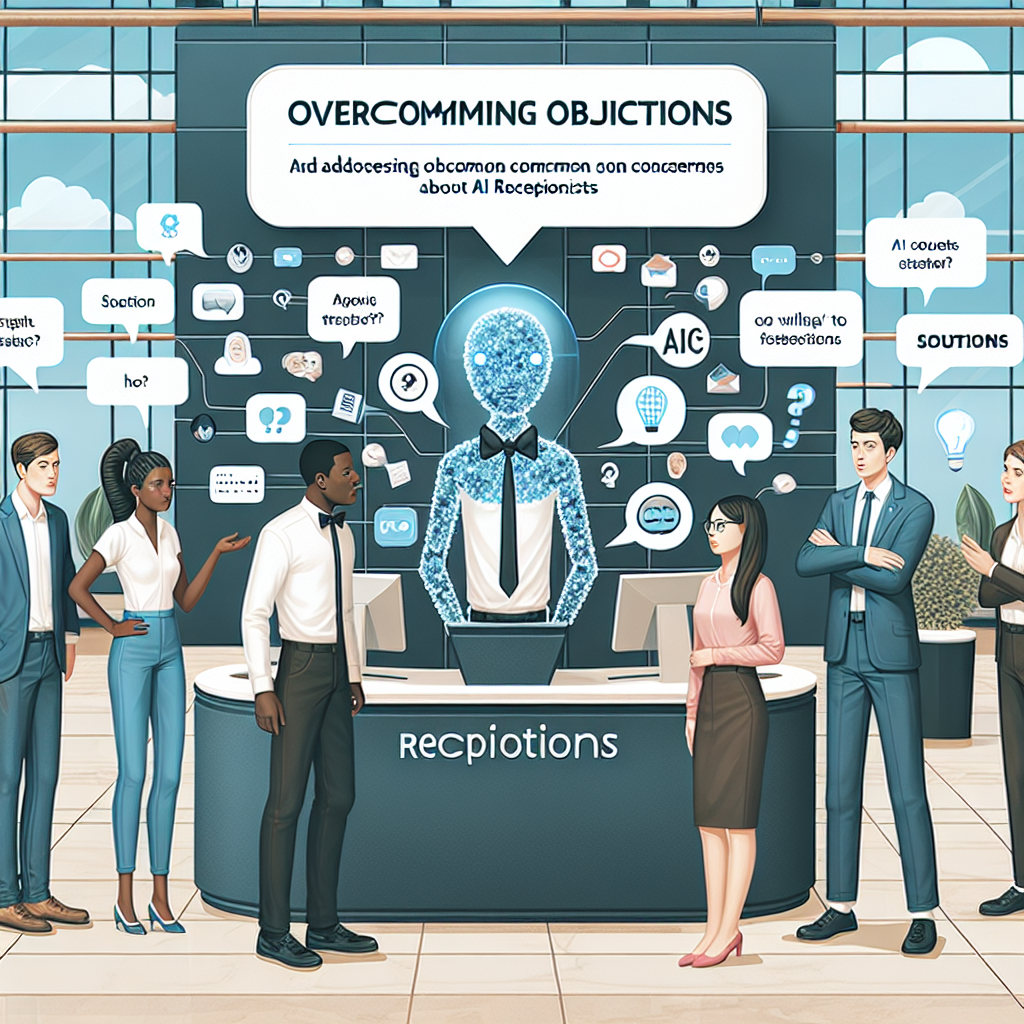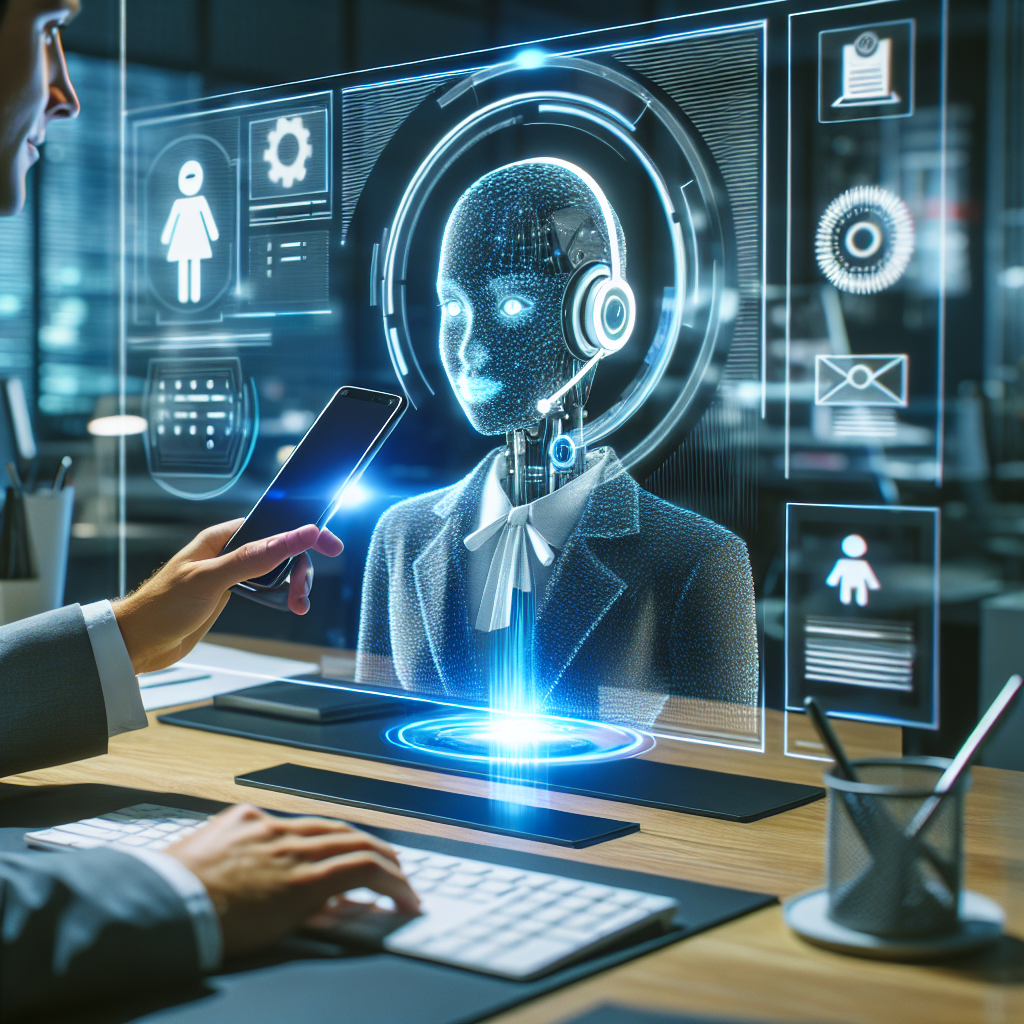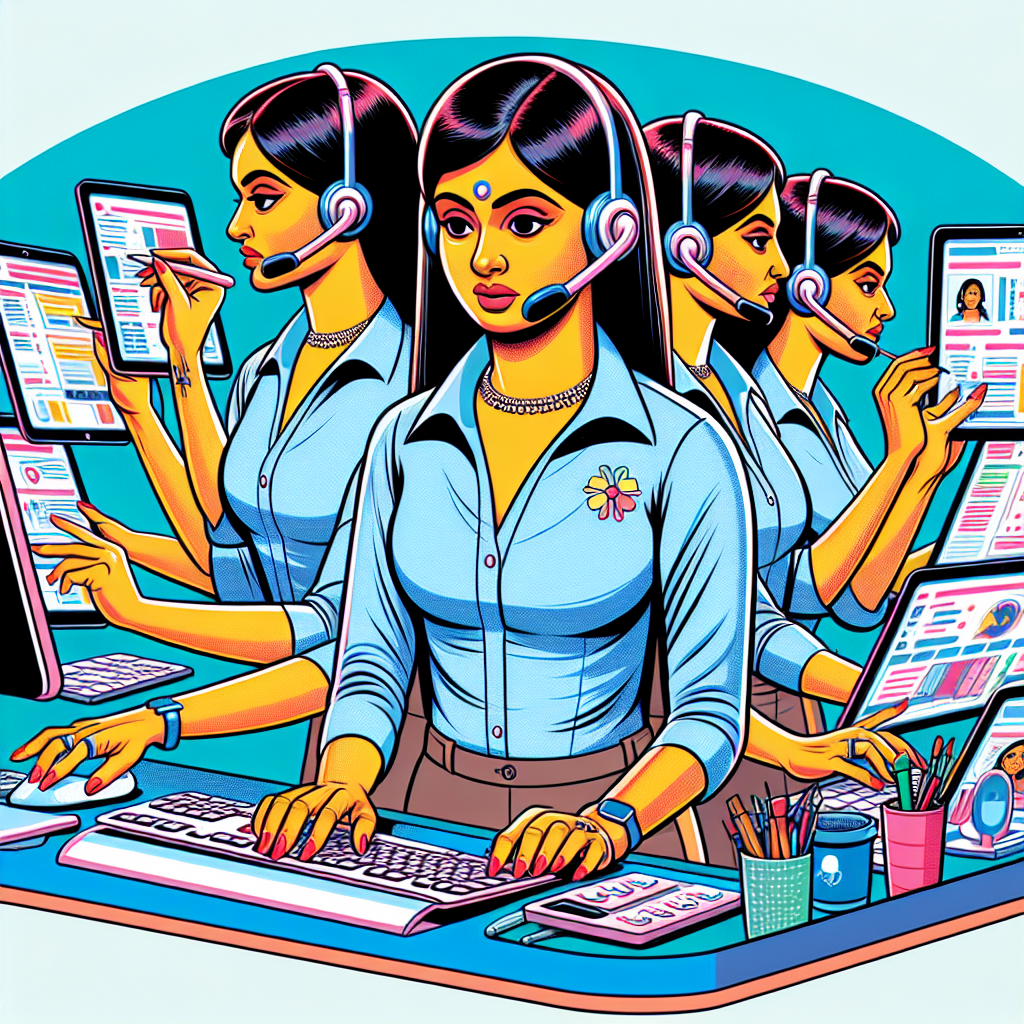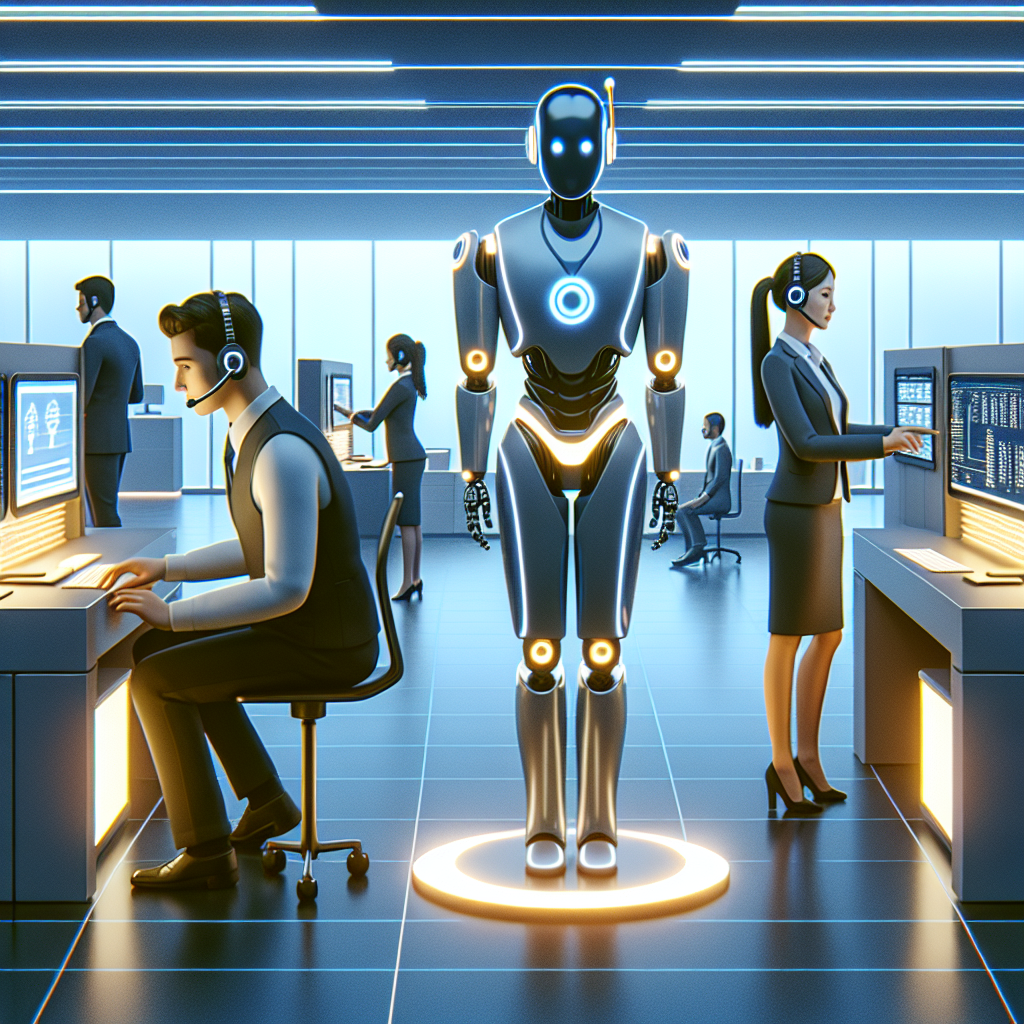
As the wave of Artificial Intelligence (AI) sweeps across industries, corporations are exploiting the multitude of opportunities it offers to streamline their operations. One such unfolding possibility is the use of AI Receptionists.
AI Receptionists, also known as virtual assistants, are leveraging advancements in AI technology to contribute significantly to modern business operations. Their role often involves answering customer phone calls, directing incoming traffic, and handling routine administrative tasks, thus freeing up human resources for more complex tasks. But, as with any disruptive technology, there are inherent objections and concerns.

One primary concern among businesses is the fear that AI receptionists may yield impersonal interactions. Naysayers argue that technology lacks the ability to connect with humans on an emotional level like their human counterparts. However, with significant progress in AI's capability to emote, many of these concerns are gradually being allayed.
Another common objection revolves around the potential data security risks associated with AI receptionists. Given that these systems operate by accessing and managing a significant amount of sensitive data, the danger of data breaches poses a serious concern. However, advanced AI security measures implemented by experts in the field aim to mitigate these risks.
The purpose of this article is to overcome these objections by debunking myths, addressing common concerns, and elucidating the potential of AI receptionists in transforming business operations.
One of the constant barriers to the broader implementation of AI Receptionists is a set of misconavine misconceptions. Let's demystify some of the most common myths and shed light on the realities of AI receptionists.
Myth 1: AI Receptionists Will Displace Human jobs
The most prevailing myth is that AI receptionists will render human receptionists jobless. However, according to a report by the World Economic Forum, AI and automation technologies are just as likely to create jobs as they are to displace them. The goal of AI receptionists is not to replace, but to assist human staff, and allow them to focus on tasks of greater value or importance to the company.
Myth 2: AI Lack the 'Human Touch'
Another common objection is that AI can't replicate the 'human touch' in customer service. Yet, real-world examples prove otherwise. The ability of AI to learn and evolve allows it to deliver highly personalized and intuitive customer interactions. Take IBM's Watson Assistant, for instance, which is capable of understanding and responding to users in natural language, thus providing personal and engaging customer interactions.
Myth 3: AI Receptionists Are Unreliable
Critics argue that AI receptionists are prone to errors and miscommunication. In reality, AI technologies are constantly improving and learning from past mistakes, ultimately increasing their reliability. A report by Gartner indicates that by using AI, companies report fewer mistakes, enhanced productivity, and improved customer satisfaction.
Therefore, as we look ahead, it's essential to separate the facts from the myths. By doing so, we can identify the fantastic opportunities that AI receptionists offer, not only for business growth but also for staff growth, and the elevation of customer experiences.
Artificial Intelligence (AI) is driving unprecedented change across multiple industries. AI receptionists, in particular, have been at the forefront in transforming businesses by enhancing operational efficiency and reducing costs. But how does this innovation achieve these results?

Firstly, let's consider cost efficiency. Traditional front-desk receptionists require salaries, benefits, and continuous training, which adds to operational costs. On the other hand, AI receptionists are a one-time investment that can lead to significant cost savings. A recent study suggests that businesses that have adopted AI receptionists achieved an average of 30% cost reduction in reception services.
Now, let's shift our focus to operational efficiency. AI receptionists can handle multiple tasks simultaneously, significantly outperforming human counterparts. They don't need breaks and can operate 24/7, thereby increasing productivity. Additionally, AI receptionists can perform data analysis to provide insights into customer needs and behavior, thereby enhancing strategy formulation and decision making.
Many industries have successfully integrated AI receptionists into their operations. The hotel industry, for instance, has seen notable efficiency improvements with the use of AI receptionist technologies. Case in point, the famed Henn-na Hotel in Japan employs AI robots as receptionists, resulting in a more streamlined check-in process and improved customer experience. Similar successes have been echoed in the healthcare industry. Studies show that AI receptionists in hospitals have reduced administrative load and improved patient satisfaction by ensuring that inquiries and scheduling are managed efficiently and promptly.
In conclusion, AI receptionists significantly contribute to cost savings and operational efficiency. As AI continues to evolve, businesses can look forward to even more significant improvements in these areas.
In the bustling business landscape, overcoming objections about the use of artificial intelligence, specifically AI receptionists, is a pressing need. An essential part of unpacking these common concerns is understanding how these AI systems function in handling diverse customer interactions.
There's often the worry that an AI receptionist may lack the ability to empathize with customer issues or understand complex queries – a fear that undermines the essence of artificial intelligence. However, advances in near-human-like emotion understanding and context capturing abilities have greatly evolved over time in AI.
AI receptionists are meticulously programmed to comprehend and courteously respond to a wide range of customer queries and complaints. With exceptional customer service as the vacation, each interaction is guaranteed professionalism, uniformity, and accuracy – traits epitomised by AI. Additionally, these interactions undergo continuous learning and improvement, progressively enhancing the customer experience.
Likewise, it's essential to underscore that AI receptionists don't react on mood swings or have a 'bad day', hence, their customer services is consistently high. This removes the inconsistencies in tone, language, and level of service that you might experience in a conventional receptionist. It ensures that every customer is treated well every time.
In conclusion, the use of AI receptionists in dealing with diverse customer interactions punches the clock on professionalism and consistency. Managed appropriately, businesses can circumnavigate common concerns and objections about their use, thus exploiting their numerous benefits to the optimum.
As the digital world continues to evolve, so too does the role of Artificial Intelligence within it. One such manifestation of this advancement is the AI receptionist; machines utilizing AI to handle reception duties, customer attendance, call routing, and various other tasks typically assigned to human receptacled employees. However, integrating these AI receptionists into the human workforce, thereby creating what is often referred to as a blended workforce model, can solicit some degree of skepticism and objection.

The advent of AI receptionists may elicit concerns from human staff members, primarily around job security and shifting dynamics in the workplace. However, it's essential to understand that the role of AI is not to replace, but to complement and enhance the human workforce. Indeed, rather than supplanting human employees, AI receptionists free up their human counterparts to focus on tasks requiring critical thinking, creativity, and interpersonal relations—areas where humans still have the edge over AI.
Addressing objections and easing concerns about the integration of AI receptionists into the workforce requires a strategic approach. Open, straightforward communication about the why and how of AI integration can go an extraordinarily long way in exciting and recruiting employees. Establishing clear-cut roles for both AI and human staff and providing proper training for human workers on how to interact and work with AI counterparts can eliminate potential confusion and fear.
Flexibility is another key in this transformation. Broaden your vision to see AI as a tool rather than a threat - a powerful instrument capable of evolving with the needs of your company and its human workforce. AI receptionists have the potential to increase efficiency, precision, and productivity, facilitating human employees' abilities to focus more on strategic and relationship-building functions.
In conclusion, fostering a collaborative mentality, stressing the complementarity between AI and humans instead of a replacement paradigm, and nurturing an environment for continuous education and adaptation, will ensure any objections or concerns regarding AI receptionists are well-addressed. The future of work undoubtedly includes AI, but it will always necessitate the unique capabilities of the human warmth and touch.
In the rapidly evolving world of technology, AI Receptionists are set to revolutionize customer service across multiple sectors. Artificial Intelligence (AI), especially when used in receptionist roles, has generated intense scrutiny and diverse reactions. While some fear job displacements, others embrace the innovativeness and efficiency that comes with it. But one thing is certain, the future of customer service is set to transform dramatically with these AI advancements.
Consider the development trajectory of AI over the past decade. As illustrated by the detailed Forbes report, the pace of progress is impressive. It is not far-fetched to envision a future where AI receptionists don't just take and direct calls but also provide in-depth support, insightful recommendations, and even perform complex human-like tasks.
Despite the concerns, there are reassuring aspects. For instance, the fear of job displacement often overshadows the fact that AI is likely to create new roles, a perspective covered by World Economic Forum. Enterprises could reallocate routine tasks to AI receptionists, focusing their human talent instead on strategic and complex problems, triggering a shift from mundane to value-packed roles.
Addressing another primary concern – the fear of impersonal service – developers are tirelessly working on refining AI's emotional intelligence. Groundbreaking developments like GPT-3 indicate a future where AI receptionists can comprehend context, detect sentiments, and respond empathetically, yielding a more personalized user experience.
Naysayers notwithstanding, the potential of AI receptionists in reshaping customer service is immense. As the technology matures and society becomes increasingly digital, AI receptionists may become the norm rather than the exception, an integral part of the customer service landscape. We stand at the brink of an AI revolution. It is, therefore, incumbent on us to acknowledge and address these common concerns, paving a way for the unbridled potential of AI receptionists.
Start your free trial for My AI Front Desk today, it takes minutes to setup!








